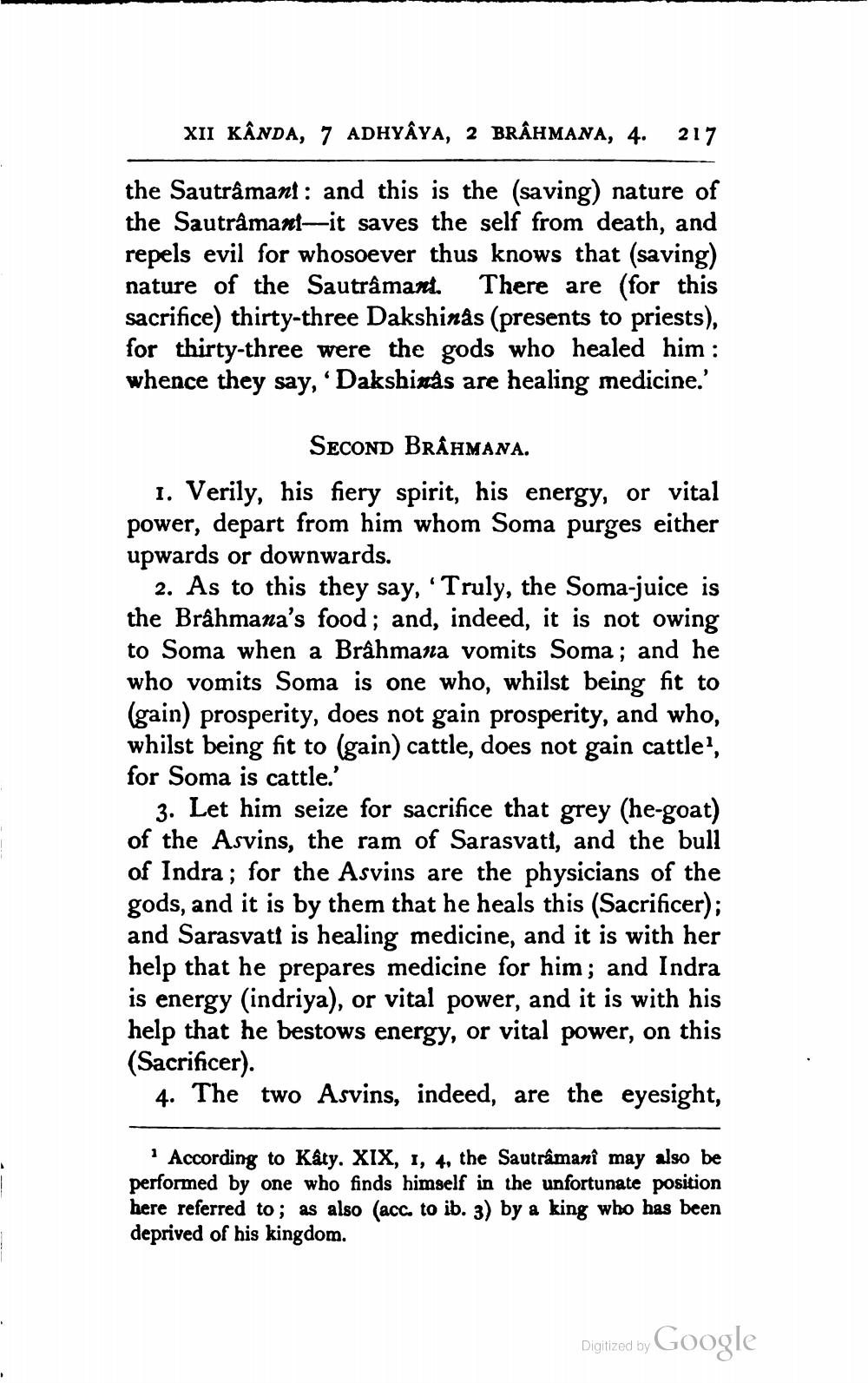________________
XII KÂNDA, 7 ADHYAYA, 2 BRÂHMANA, 4. 217
the Sautrâmant: and this is the (saving) nature of the Sautrâmant—it saves the self from death, and repels evil for whosoever thus knows that (saving) nature of the Sautrâmant. There are (for this sacrifice) thirty-three Dakshinas (presents to priests), for thirty-three were the gods who healed him : whence they say, 'Dakshinas are healing medicine.'
SECOND BRÂHMANA. 1. Verily, his fiery spirit, his energy, or vital power, depart from him whom Soma purges either upwards or downwards.
2. As to this they say, 'Truly, the Soma-juice is the Brâhmana's food; and, indeed, it is not owing to Soma when a Brâhmana vomits Soma; and he who vomits Soma is one who, whilst being fit to (gain) prosperity, does not gain prosperity, and who, whilst being fit to (gain) cattle, does not gain cattle, for Soma is cattle.'
3. Let him seize for sacrifice that grey (he-goat) of the Asvins, the ram of Sarasvati, and the bull of Indra ; for the Asvins are the physicians of the gods, and it is by them that he heals this (Sacrificer); and Sarasvati is healing medicine, and it is with her help that he prepares medicine for him; and Indra is energy (indriya), or vital power, and it is with his help that he bestows energy, or vital power, on this (Sacrificer).
4. The two Asvins, indeed, are the eyesight,
According to Katy. XIX, 1, 4, the Sautrâmanî may also be performed by one who finds himself in the unfortunate position here referred to; as also (acc. to ib. 3) by a king wbo has been deprived of his kingdom.
Digitized by Google




